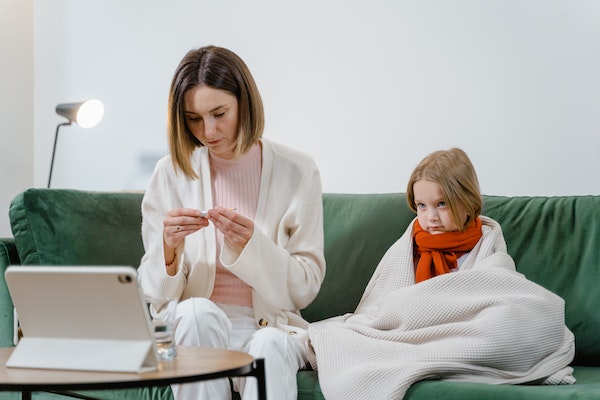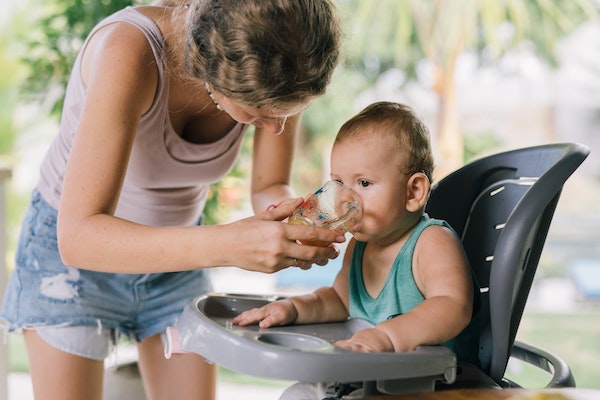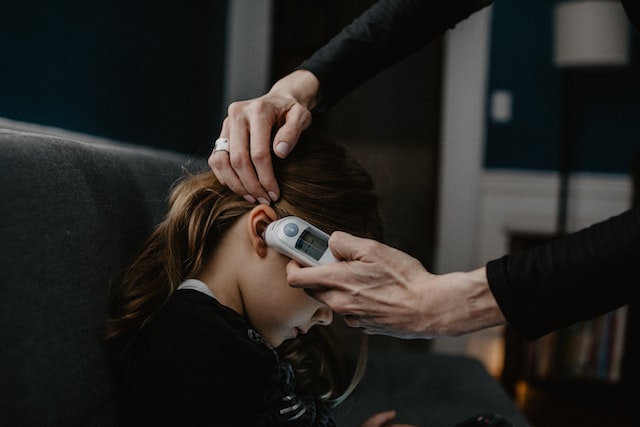Before nursery, most children only interact with close friends and family. So when they start spending their days with several other children, it can be a bit of a shock to the system. As a result, they often suffer from a steady (and at times unrelenting) succession of childhood illnesses. So we wanted to talk through some of the viruses your child could contract during their time at nursery.
From symptoms to treatments, we will cover each illness in detail – so you’re well prepared for the upcoming winter.
Coughs and colds
Without a doubt, the most common childhood illnesses are coughs and colds. Thankfully, they usually run their course within a week or two without any medical intervention.
Common symptoms include:
- Sneezing and coughing
- Runny or blocked nose
- Sore throat
- Headaches
- Mild fever
Unfortunately, there’s little you can do to alleviate your child’s symptoms apart from offering them sugar-free paracetamol or ibuprofen and ensuring they’re well rested and hydrated.
However, if your child develops additional symptoms like a persistent fever (38°C or above), a rash, or they experience difficulty breathing, you should contact your GP immediately.

Earache and tonsillitis
Much like the common cold, mild ear infections usually get better on their own. However, this isn’t always the case. Sometimes earache can be a symptom of tonsillitis. So let’s explore the difference.
Symptoms of a mild ear infection include:
- Irritability and discomfort
- Red ears
- Raised temperature
- Possible fluid or discharge from the ear
However, children will tonsillitis will often experience earache plus other symptoms, including:
- Coughing
- Sore throat
- High temperature
- Swollen glands
- Difficulty swallowing
Again, these infections usually run their course within a few days, but you can always use ibuprofen or paracetamol to help with pain relief. However, if your child becomes increasingly uncomfortable or shows no sign of improvement within four days, we strongly suggest contacting your GP.

Sickness and Diarrhoea
Sickness and diarrhoea are arguably one of the most gruelling childhood illnesses for both parents and children. And unfortunately, they often get passed around schools and nurseries. So it’s best to prepare for every eventuality.
If your child does contract a stomach bug, your priority is to keep them hydrated. So encourage them to drink whenever possible – you can also purchase rehydration sachets from the pharmacist. Vomiting should stop within a day or two. However, diarrhoea can last up to a week, so make sure to sanitise regularly to prevent the infection from spreading throughout your family.
If your child has been severely unwell for over 24 hours or you notice signs of dehydration (dry mouth, dark yellow urine and fatigue), call 111 or contact your GP.

Fevers
High temperatures are relatively common in young children. However, the trick is identifying whether the fever is the result of a mild viral infection or the symptom of a more severe illness.
Symptoms of a mild fever will include:
- Feeling warm or hot to touch
- Flushed skin
- Sweating and shivering
- A temperature between 37.5°C and 38°C
If your child shows signs of a fever, focus on keeping them hydrated. So encourage them to drink regularly, dress them in light clothes and offer them a wet flannel to cool them down.
However, if your child develops a rash, stops eating, shows signs of dehydration or maintains a fever for five days, you should contact your GP. That way, they will be able to identify whether the infection is a sign of something more sinister.

Trust your instincts
Childhood illnesses are usually nothing to worry about (in fact, they’re great for strengthening your child’s immune system), but it’s better to err on the side of caution. So, if your child is ever unwell, remember to prioritise their hydration, ensure they get plenty of rest and offer them paracetamol or ibuprofen to relieve any pain.
With that said, children may be resilient, but no one knows your child quite like you. So if you’re ever concerned about your child’s health, do not hesitate to call 111 or make an appointment with your GP.
At Schoolhouse Daycare, we enjoy learning, encouraging confidence and we love life! If you think your child would enjoy life at Schoolhouse, then please do not hesitate to arrange a visit.

